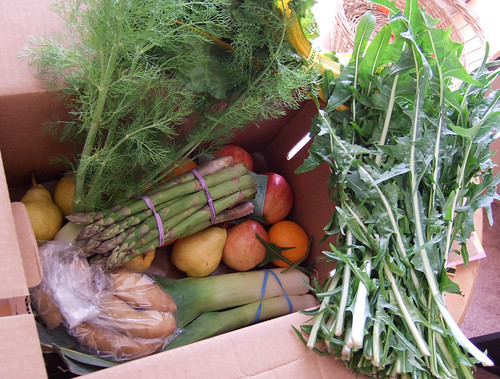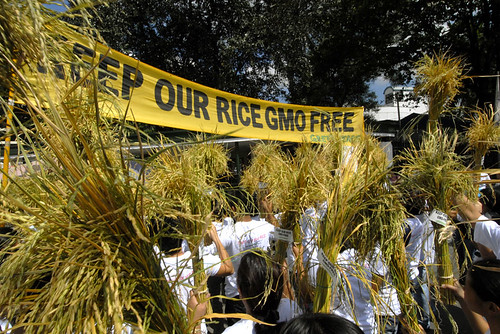Organic is impressively productive
NOTE FROM GM WATCH: Organic alfalfa and wheat, and to a lesser extent corn and soybeans, can be as productive as conventional counterparts, according to a new University of Wisconsin-Madison study published in the Agronomy Journal. The researchers compared results on Wisconsin farms over 8-13 years, and said their results should apply to prairie right across the upper Midwest of the US.
The full article is available for no charge for the next 30 days.
View the abstract at http://agron.scijournals.org/cgi/content/abstract/100/2/253
(Agronomy Journal is a peer-reviewed, international journal of agronomy published six times a year by the American Society of Agronomy (ASA) http://www.agronomy.org )
SEE ALSO: Organic agriculture - new research and studies
http://www.gmwatch.org/archive2.asp?arcid=892310 Reasons Organic Can Feed the World (REFERENCED VERSION)
http://www.theecologist.org/archive_detail.asp?content_id=118410 Reasons GM Won't Feed the World (REFERENCED VERSION)
http://www.theecologist.org/archive_detail.asp?content_id=1185
---

Organic Crops Impressively Productive When Compared With Conventionally Grown Crops
ScienceDaily, March 26 2008 [Adapted from materials provided by American Society of Agronomy] http://www.sciencedaily.com/releases/2008/03/080325101134.htm
— Can organic cropping systems be as productive as conventional systems [ie conventional industrial agricultural systems]? The answer is an unqualified, 'Yes' for alfalfa or wheat and a qualified 'Yes most of the time' for corn and soybeans according to research reported by scientists at the University of Wisconsin-Madison and agricultural consulting firm AGSTAT in the March-April 2008 issue of Agronomy Journal.
The researchers primarily based their answer on results from the Wisconsin Integrated Cropping Systems Trials, conducted for 13 years (1990-2002) at Arlington, WI and 8 years (1990-1997) at Elkhorn, WI. These trials compared six cropping systems (three cash grain and three forage based crops) ranging from diverse, organic systems to less diverse, conventional systems.
The cash grain systems were:
conventional continuous corn, conventional corn-soybean, and organic corn-soybean-wheat where the wheat included a leguminous cover crop.
The three forage based systems were:
conventional corn-alfalfa-alfalfa-alfalfa, organic corn-oats-alfalfa-alfalfa, and rotationally grazed pasture.
In this research they found that: organic forage crops yielded as much or more dry matter as their conventional counterparts with quality sufficient to produce as much milk as the conventional systems; and organic grain crops: corn, soybean, and winter wheat produced 90% as well as their conventionally managed counterparts.
In spite of some climatic differences and a large difference in soil drainage between the two sites, the relatively small difference in the way the cropping systems performed suggested that these results are widely applicable across prairie-derived soils in the U.S. upper Midwest. The researchers also compared their results to other data analysis done on this topic in the U.S. Midwest.
Although researchers found that diverse, low-input/organic cropping systems were as productive as conventional systems most of the time, there is a need for further research, according to the study’s author Dr. Joshua L. Posner, University of Wisconsin.
'There continues to be improvements in weed control for organic systems that may close the gap in productivity of corn and soybeans in wet seasons,' Posner says. 'On the other hand, technological advances may accelerate productivity gains in conventional systems that would outstrip the gains in organic systems even in favorable years.'
The true question of whether organic cropping systems are as productive as conventional systems is a dynamic question and one that requires continual reevaluation.

Ten reasons

http://www.lobbywatch.org/archive2.asp?arcid=8883
1. 10 Reasons Why Organic Can Feed the World
2. And 10 reasons GM won't
The premise of 'The death of food...' is that an entire culture of cheap mass-produced food is about to be brought to a grinding halt. Various contributors, including Vandana Shiva, Joanna Blythman and Tim Lang, explore what will take its place. More information at http://www.theecologist.org/current.asp

0 Comentarios:
Publicar un comentario
Suscribirse a Comentarios de la entrada [Atom]
<< Página Principal